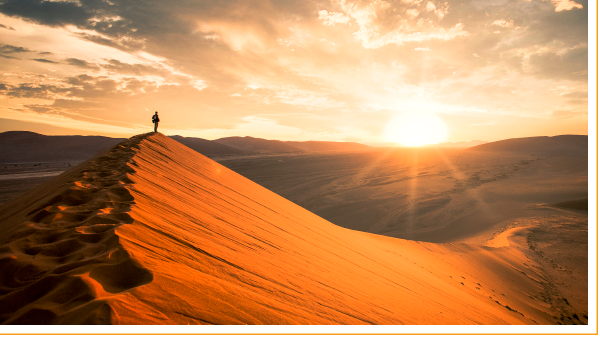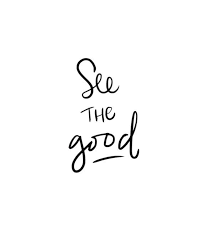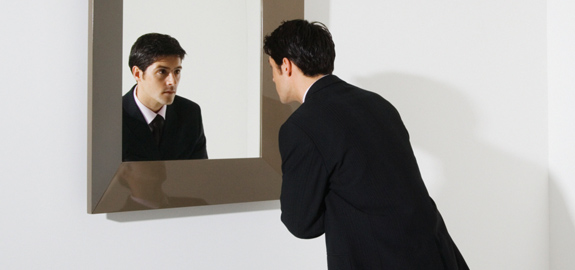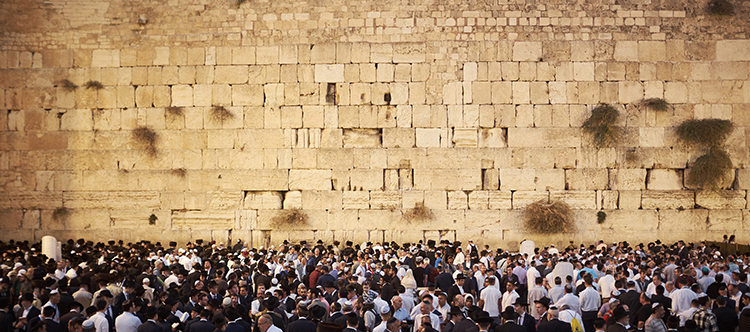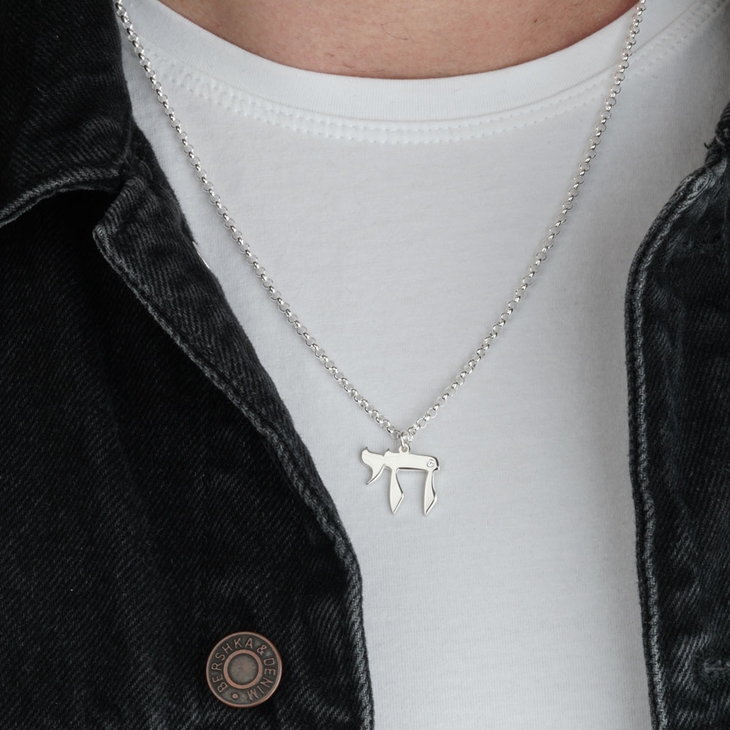August 7, 2023|כ' אב ה' אלפים תשפ"ג Ekev 5783 - Birkas HaMazon - The Simple Gift of Perspective
Print ArticleA young child at a Chassidic gathering at 770 in Crown Heights, Brooklyn, once lost his father momentarily. Thousands of men present were wearing long black kapotehs, and thinking he had found his father, the child innocently grabbed the hand of the Lubavitcher Rebbe, and wiped his dirty face on the Rebbe’s sleeve.
The next day, the rebbe received a note from the mother of the child, begging forgiveness, saying she was embarrassed and pained at what had happened. The mother soon received her note back with a question make and exclamation point inscribed after the word “pained”. The rebbe wrote at the bottom, “On the contrary: He brought me great pleasure. One cannot begin to measure the heartfulness, simplicity, innocence, and sincerity of a child – if only half these qualities could be found in adults”. (Baderech, p. 95-96)
A life as a Torah Jew is full of brachos. We make brachos when we preform mitzvos, when we eat, when we smell nice smells, when we hear thunder and lightning, and even when we use the restroom.
Yet, there is only one bracha that all meforshim agree is a Torah commandment. And that is the bracha we are taught this week, the Birkas haMazon, benching.
The Meshech Chochma, Rav Meir Simcha HaKohein of Dvinsk, asks a simple, but I believe, fundamental question about the mitzvah of benching: What is the goal of this mitzvah?
And he offers two answers:
1) The gemara in brachos tells us that many other brachos are learned from benching. For example, says the gemara, if a person has to make a bracha AFTER enjoying food, and one is ALREADY FULL, then OF COURSE one should also have to make a bracha AHEAD OF TIME, while I’m hungry and waiting to eat.
What you see, then, is that the gemara assumes that the GOAL of a bracha is HAKARAS HATOV. It’s an opportunity to hone our midos, appreciating the good that Hashem gives us.
2) However, argues the Meshech Chochma, if you look at the psukim as well as the overall context of the pasuk, you will find a very different reason for benching.
Moshe Rabbeinu, as we know, is giving Bnei Yisrael one last message before he passes away and they head into Eretz Yisrael. And right here, in the eighth chapter of sefer devarim, as he delivers the mitzvah of Birkas HaMazon, he reminds the people of a danger they will experience as they enter the land:
- He tells them to remember how HKBH took care of us in the desert, providing food, drink, and clothing.
- He tells them how Eretz Yisrael will be a land of plenty.
- And then He warns them of what typically happens to human beings when their life is good:
(יב) פֶּן תֹּאכַל וְשָׂבָעְתָּ וּבָתִּים טֹבִים תִּבְנֶה וְיָשָׁבְתָּ...(יג) וּבְקָרְךָ וְצֹאנְךָ יִרְבְּיֻן וְכֶסֶף וְזָהָב יִרְבֶּה לָּךְ וְכֹל אֲשֶׁר לְךָ יִרְבֶּה...(יד) וְרָם לְבָבֶךָ וְשָׁכַחְתָּ אֶת יְקֹוָק אֱלֹהֶיךָ הַמּוֹצִיאֲךָ מֵאֶרֶץ מִצְרַיִם מִבֵּית עֲבָדִים:
You’ll eat and be satiated, you’ll build nice houses, you’ll do well financially, and then… V’Ram Levavecha… you’ll become haughty, and forget about HKBH, the One who has brought you to this point.
And, therefore, says HKBH, what is the antidote to V’Ram L’vavecha V’Shachachta es Hashem Elokecha?
(י) וְאָכַלְתָּ וְשָׂבָעְתָּ וּבֵרַכְתָּ אֶת יְקֹוָק אֱלֹהֶיךָ עַל הָאָרֶץ הַטֹּבָה אֲשֶׁר נָתַן לָךְ:
You should eat, be satiated, and then BLESS HKBH for the wonderful land He has given you.
Says the Meshech Chochma, just look at the Torah itself!
- The mitzvah of Birkas HaMazon is NOT something HASHEM needs from us.
- It’s not even ONLY about teaching us to be grateful and thankful to HKBH.
*The Mitzvah of Birkas HaMazon is a BRACHA FOR US. It’s an opportunity to step back and take PERSPECTIVE. To remind ourselves that what matters most in our lives is NOT that which we gather and gain for ourselves, but how all that we have provides us with a backdrop to live lives as Ovdei Hashem.
Yes, we should be V’Achalta V’Savata. We should enjoy the world He has given us, AND we should take breaks throughout the day to remind ourselves what it’s all about. Our relationship with Hashem Elokecha.
Birchas HaMazon, says the Meshech Chochma, is like a SPIRITUAL STOP SIGN, reminding us to pause throughout our day, to remember what life is all about.
And if this is true, it is no wonder that the gemara in brachos learns so many other brachos that chazal put into place FROM BIRCHAS HAMAZON.
Rav Herschel Schachter likes to point out that whenever chazal make a takana k’ein doraysa tiknum, they always fashion it by copying the style of the Torah mitzvos themselves.
And I would argue that the myriad of brachos chazal set up for us, BEFORE WE EAT, when we hear thunder and lightning, when we smell a beautiful smell, when we take a long trip, and after we use the restroom, are all there “K’ein doraysa” fashioned with the SAME PURPOSE as the initial bracha midoraysa.
Chazal flooded us with the opportunity for brachos so many times throughout the day so that we shouldn’t float through the day forgetting what we’re here for.
And if we are looking to bring more kedusha into our lives, we don’t need to make some type of EXTREME CHANGE. We can simply become more attuned to the opportunity to stop for 15 seconds and make a bracha.
Earlier on the parsha, Moshe Rabbeinu tells Klal Yisrael.
הִשָּׁמֶר לְךָ פֶּן תִּשְׁכַּח אֶת ה’ אֱלקיךָ לְבִלְתִּי שְׁמֹר מִצְוֹתָיו...
Be careful not to forget Hashem, which will lead to not keeping the mitzvos.
Rav Zalman Sorotzkin in Aznayim L’Torah asks:
What, it’s ok if you forget Hashem and continue keeping the mitzvos?! That seems to be the implication of the pasuk!
And he answers, YES! Because there are times for all of us when we drift from HKBH. We all have times when we feel more connected and times when we feel less connected. But, if I remain anchored in a life of MITZVAH, if I DO THE THINGS that connect me to HKBH, then even if for a time I feel like I’m floating away, the mitzvos will always provide that life preserver, that dingy that keeps me connected to the Coast Guard in Shamayim.
That is the power of a bracha, a birchas hamazon, an Asher Yatzar, a Shehakol nihiye bidvaro. A small thing that is really very big. A small act of Yiras Shamayim, that can help me stay connected, no matter how far I might feel I have drifted.
I’m not entirely sure why making brachos, benching, is something that isn’t always en vogue. Is it the simplicity itself that makes us feel not sophisticated or overly religious? Are we just too rushed to take the time? Probably a little bit of both.
But whatever the reason, we should not allow those feelings to get in our way. Because making a bracha doesn’t require some kind of special knowledge or sophistication. It requires the simple, basic desire to connect. And that is something ALL OF US CAN DO.
It’s an opportunity to grab the hand of our Father in Heaven, no matter the shmutz we bring with us.
So, the next time the opportunity to make a bracha presents itself, consider the opportunity in front of you. An opportunity to reach out, and grab His hand, and let Him know you know the things in life that truly matter.
